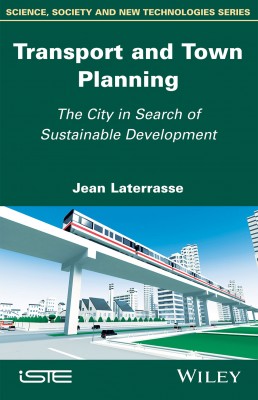
In a context where climate change urgently requires us to alter our paradigms, this book explores the possibilities of cities that are both more energy efficient and more respectful of the environment.
Based on the observation that urban planning has been detrimentally affected by the compartmentalization of knowledge and practices, this book is conceived as a dialog between transport and urban planning on the one hand, and between engineering and social science on the other. Systemic analysis and a historical approach, integrating the teachings of the last two centuries, constitute at the methodological level the framework in which this dialog unfolds.
Based on examples of good practice, Transport and Town Planning identifies an effective set of levers of action and proposes an original method to guide and accompany urban transition with a large share of the initiative reserved for the actors concerned.
1. City and Complexity: How to Untangle the Skein?
2. Town Planning and Urban Pattern: the Emergence of Circulatory Function.
3. Building of New Towns: an Attempt at Linking Transport Networks to Urban Planning.
4. Models and Definitions: Changing the Paradigm.
5. Good Practices and Levers of Action.
6. What if the 21st Century was the Century of Suburbs?
7. Methods and Tools for Urban Transition.
Jean Laterrasse worked for 15 years as a Professor at Paris Est University in France, where he directed the “Ville mobilité transport” laboratory and a Master’s program for engineers and urban planners. He is currently scientific advisor at the Institut pour la transition energétique de la ville Efficacity.